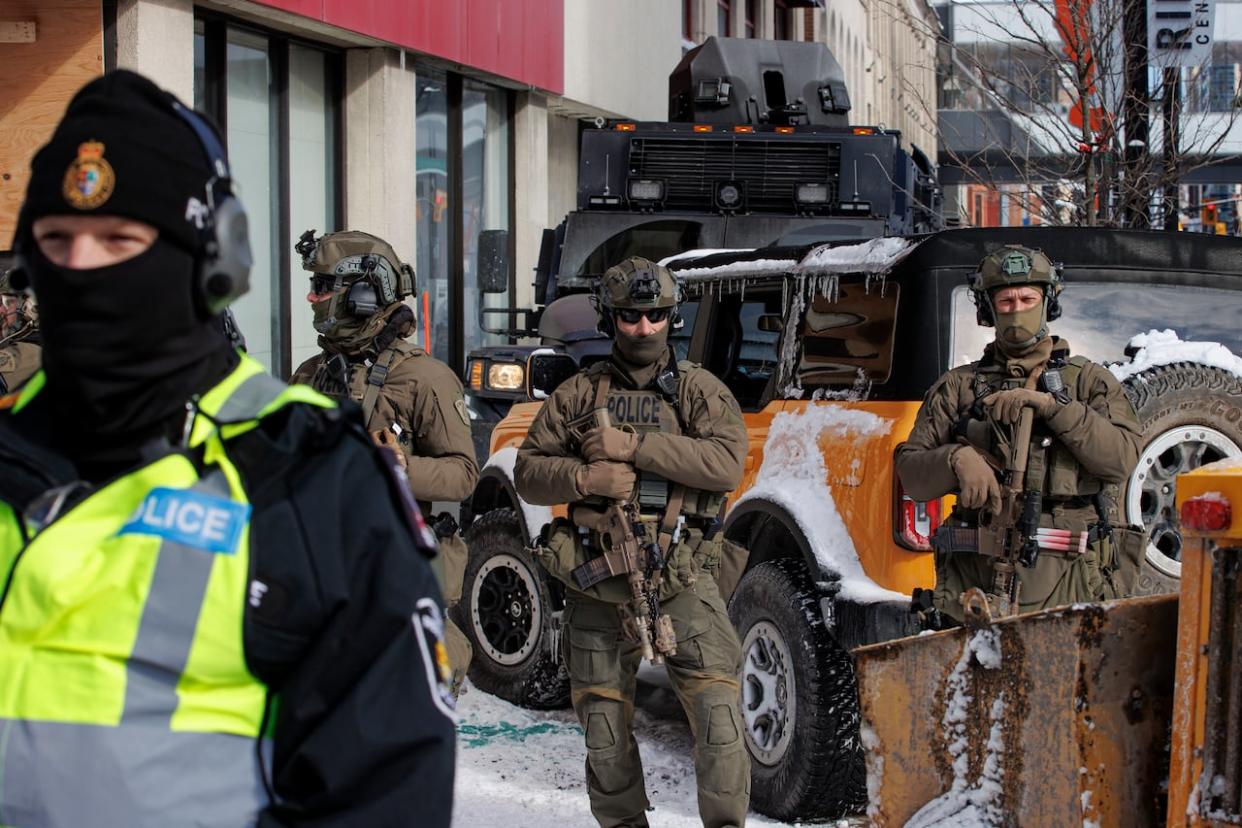Judge orders police documents to be unredacted, shared at convoy trial

The judge overseeing the criminal trial of two people charged with organizing the Freedom Convoy is unredacting internal police documents to be used in court.
On Friday, Justice Heather Perkins-McVey ordered information — contained in an email police had redacted entirely for solicitor-client privilege — to be partially disclosed to the defence.
She's allowing some of the statements and opinions made by officers in those emails to be shared with Tamara Lich and Chris Barber's lawyers.
Barber and Lich are co-accused of mischief, obstructing police, counselling others to commit mischief and intimidation for their roles in the weeks-long protest that gridlocked streets in downtown Ottawa through much of January and February 2022.
The Ottawa Police Service had been previously chided by Perkins-McVey for an "unusual" software upgrade that led to texts between officers dealing directly with protesters, including one of the accused, being deleted from their phones.
Defence lawyers had requested the police, through Crown prosecutors, provide them with certain instructions received by the officers called to testify in the trial. Those instructions had to do with what officers should do with regards to turning over evidence they had collected leading up to, during and after the protests.
Ottawa police showed up to court arguing that doing so would "pierce the veil" of solicitor-client privilege, but the judge ordered portions to be unredacted, and then turned over to the defence.
It is not clear when the trial will resume, but a "check-in" is taking place Nov. 8 to set additional dates.


